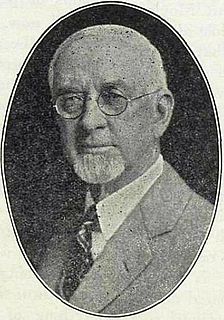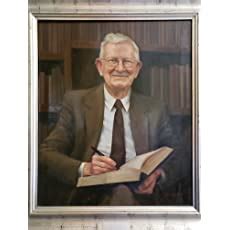A Quote by Henri Frederic Amiel
Sacrifice, which is the passion of great souls, has never been the law of societies.
Related Quotes
People talk of the sacrifice I have made in spending so much of my life in Africa. Can that be called a sacrifice which is simply paid back as a small part of a great debt owing to our God, which we can never repay? All these are nothing when compared with the glory which shall be revealed in and for us. I never made a sacrifice.
We should tell ourselves once and for all that it is the first duty of the soul to become as happy, complete, independent, and great as lies in its power. To this end we may sacrifice even the passion for sacrifice, for sacrifice never should be the means of ennoblement, but only the sign of being ennobled.
Sacrifice: Giving up something good for something better. As I have studied great men and women from the beginning of time, the common denominator of greatness has been the ability and willingness to sacrifice for whatever they were trying to achieve. When sacrifice has been there, great humans have emerged. Imagination, Wisdom
I believe that it is my duty and your duty to teach our children concerning this great God-inspired Constitution, this great law of liberty which he has given to this world, and which was never given before to any nation in any land. Never before has there been a representative government of this kind. Republics have been tried, hundreds of times, thousands of years ago, but never was there anything like this Government.
The rules and principles of case law have never been treated as final truths but as working hypotheses, continually retested in those great laboratories of the law, the courts of justice. Every new case is an experiment, and if the accepted rule which seems applicable yields a result which is felt to be unjust, the rule is reconsidered.
He in whose heart the law was, and who alone of all mankind was content to do it, His sacrifice alone can be the sacrifice all-sufficient in the Father's sight as the proper sacrifice of humanity; He who through the Eternal Spirit offered Himself without spot to God, He alone can give the Spirit which enables us to present our bodies a living sacrifice, holy and acceptable to God. He is the only High-Priest of the universe.
What we are told of the inhabitants of Brazil, that they never die but of old age, is attributed to the tranquility and serenity of their climate; I rather attribute it to the tranquility and serenity of their souls, which are free from all passion, thought, or any absorbing and unpleasant labors. Those people spend their lives in an admirable simplicity and ignorance, without letters, without law, without king, without any manner of religion.
Free societies, which allow differences to speak and be heard, and live by intermarriage, commerce, and free migration, and democratic societies, which convert enemies into adversaries and reconcile differences without resort to violence, are societies in which the genocidal temptation is unlikely and even inconceivable.
All other passions build upon or flow from your passion for Jesus. A passion for souls grows out of a passion for Christ. A passion for missions builds upon a passion for Christ. The most crucial danger to a Christian, whatever his role, is to lack a passion of Christ. The most direct route to personal renewal and new effectiveness is a new all-consuming passion for Jesus. Lord, give us this passion, whatever the cost!
Feudal societies don't create great cinema; we have great theatre. The egalitarian societies create great cinema. The Americans, the French. Because equality is sort of what the cinema deals with. It deals with stories which don't fall into 'Everybody in their place and who's who,' and all that. But the theatre's full of that.






































